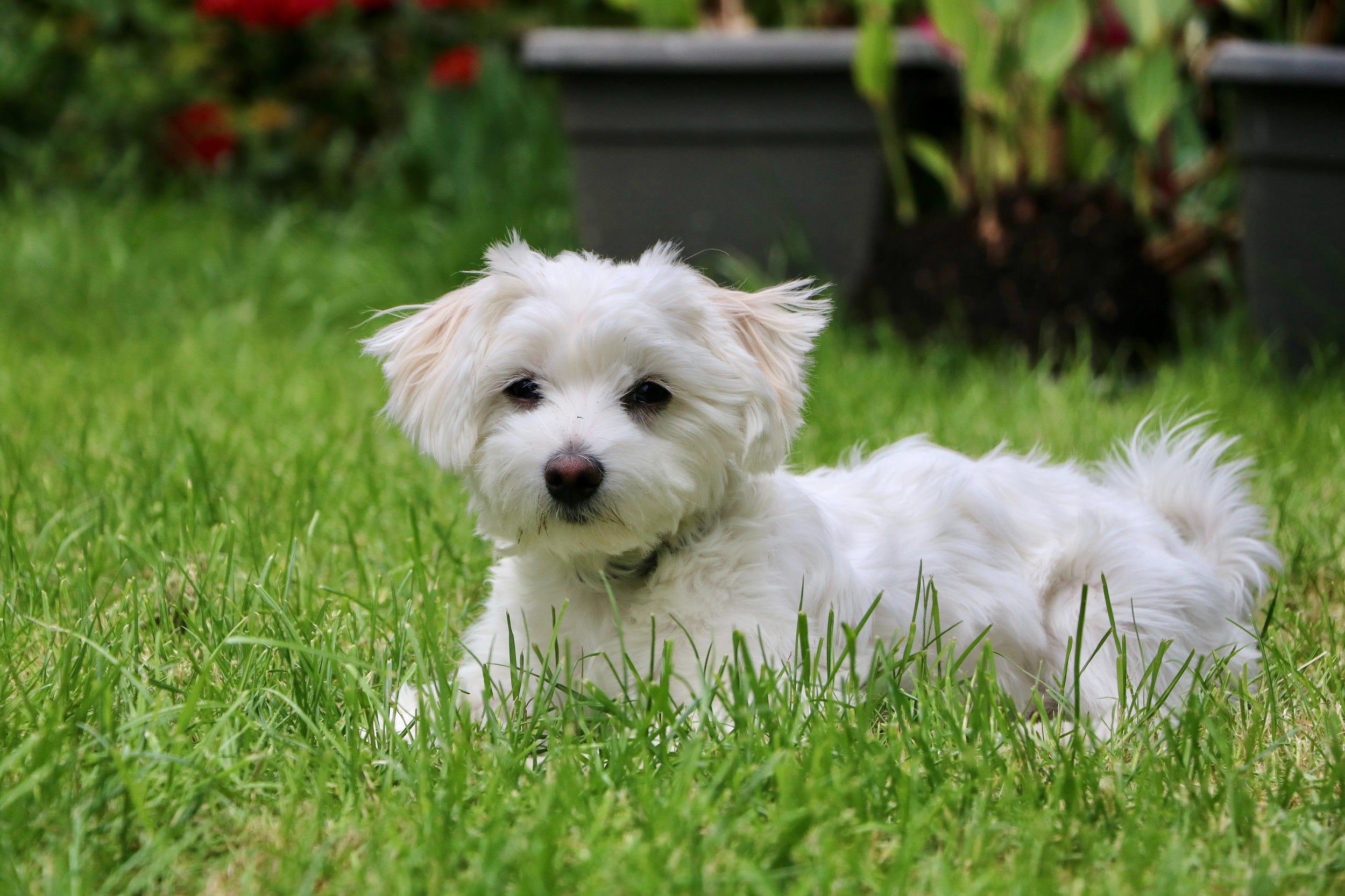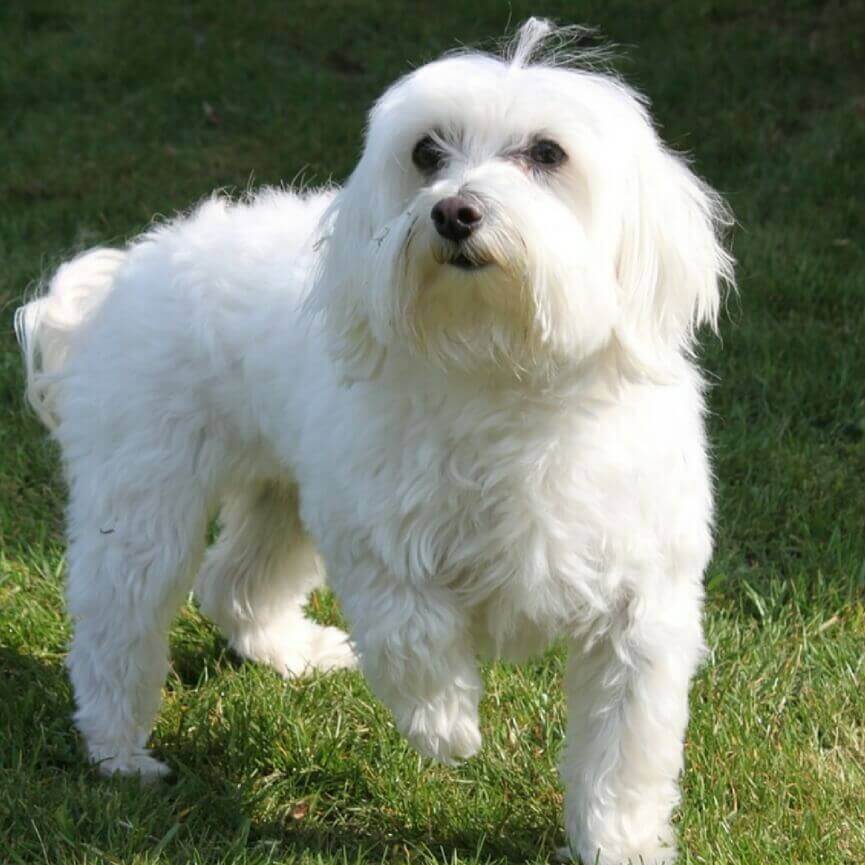As a professional dog lover, I am often asked, “What are Maltese dogs good for?” Well, here’s a surprising fact: Maltese dogs have been cherished as royal companions for over 2,000 years! They were favored by aristocrats and royalty in ancient civilizations, including the Romans and Egyptians. This breed’s history is woven with luxury and elegance, making them perfect for those who appreciate a touch of regality in their lives.
When it comes to the significant aspects of what Maltese dogs are good for, their adaptability and companionship are truly remarkable. Despite their small size, these fluffy white dogs have big personalities and love to be social. They thrive in families, making them excellent companions for children and the elderly alike. In fact, studies have shown that owning a dog like a Maltese can decrease stress levels, reduce feelings of loneliness, and even lower blood pressure. So, whether you’re looking for a loyal friend or a furry stress-reliever, a Maltese dog might just be the perfect fit for you.

What Are Maltese Dogs Good For?
Maltese dogs are small, fluffy, and adorable pets that have captured the hearts of many dog lovers. But besides being a cute companion, what are Maltese dogs good for? In this article, we will explore the various qualities and characteristics of Maltese dogs that make them excel in different roles, from being therapy dogs to agility competitors. Whether you’re considering getting a Maltese or simply curious about their abilities, read on to discover why these tiny dogs are more than just a pretty face.
Therapy Work: Bringing Joy and Comfort
One of the areas where Maltese dogs truly shine is in therapy work. Their friendly and affectionate nature make them perfect candidates for providing emotional support and bringing joy to those in need. These dogs have a natural ability to sense and empathize with people’s emotions, making them ideal companions for therapy visits to hospitals, nursing homes, and other healthcare facilities.
Maltese dogs are known for their gentle temperament, which makes them well-suited for comforting individuals dealing with physical or emotional challenges. Their small size also allows them to easily maneuver through tight spaces, making them versatile in their therapy work. Whether it’s sitting quietly with a patient or participating in interactive exercises, Maltese dogs have the ability to make a positive impact and bring smiles to people of all ages.
Furthermore, the hypoallergenic coat of Maltese dogs is an added bonus in therapy settings, as it reduces the risk of triggering allergies or asthma in sensitive individuals. This makes them a safe and welcoming choice for those who may have restrictions or concerns about pet allergies but still crave the companionship and warmth that a dog can provide.
Agility Sports: Small Dogs, Big Skills
Despite their petite size, Maltese dogs display tremendous agility and excel in various canine sports competitions. When it comes to agility, these little dogs prove that size is not a determinant of ability. Their compact build, good bone structure, and nimble movements allow them to navigate obstacle courses with ease and precision.
Maltese dogs are quick learners and possess a natural athleticism that enables them to perform well in agility sports. They have the ability to swiftly weave through poles, jump over hurdles, and navigate tunnels with great dexterity. Their high energy levels and eagerness to please their owners make them well-suited for the fast-paced and challenging nature of agility competitions.
Training a Maltese for agility requires consistency, positive reinforcement, and patience. With the right guidance and motivation, these little dogs can achieve remarkable feats and impress audiences with their speed and agility. Participating in agility sports not only provides exercise and mental stimulation for Maltese dogs but also strengthens the bond between them and their owners through shared challenges and achievements.
Companion Dogs: Unconditional Love and Devotion
Maltese dogs are at their core companion dogs. They are bred to provide love, affection, and companionship to their human families. The nurturing and attentive nature of Maltese dogs makes them ideal pets for individuals and families seeking a loyal and devoted companion.
These dogs thrive on human interaction and crave affection. They form strong bonds with their owners and are known to be highly intuitive, understanding their family’s moods and emotions. Maltese dogs are extremely adaptable and can happily live in apartments, homes, or even travel with their owners, as long as they are surrounded by love and attention.
Their playful and spirited nature brings a sense of joy and entertainment to any household. Maltese dogs love to snuggle, play, and be part of family activities, making them the perfect choice for individuals who want a furry friend to share their everyday life with. Whether you’re going for a walk in the park, relaxing at home, or embarking on a road trip, a Maltese dog will be your loyal and loving companion every step of the way.
Health Benefits: Stress Relief and Lower Blood Pressure
Beyond their roles as therapy dogs and companions, Maltese dogs also have potential health benefits. Many studies have shown that interactions with dogs can have positive effects on human mental and physical health. The presence of a Maltese dog can provide stress relief, reduce anxiety, and increase overall happiness.
Petting a Maltese dog has been shown to lower blood pressure and release endorphins, chemicals in the brain that create feelings of joy and well-being. The act of petting a dog can promote relaxation and help individuals unwind from the pressures of daily life. The comforting presence of a Maltese can ease feelings of loneliness and provide emotional support, especially for those living alone or experiencing emotional distress.
Additionally, having a Maltese dog as a pet can encourage a more active lifestyle. Daily walks and playtime with these energetic companions not only provide exercise for the dog but also an opportunity for owners to stay active and maintain a healthy routine.
Training Tips: Nurturing the Best Qualities
When it comes to training a Maltese dog, it’s important to remember their sensitive nature and adapt the training methods accordingly. Positive reinforcement, consistency, and patience are key when training these intelligent and eager learners.
Start training your Maltese early and focus on socialization to ensure they become well-rounded and confident dogs. Early exposure to different people, animals, and environments will help them develop into friendly and well-behaved companions.
Due to their small size, Maltese dogs can be prone to developing small dog syndrome, where they may display bossy or aggressive behavior to compensate for their size. It’s important to establish yourself as the pack leader through positive reinforcement training, so they understand their place in the family hierarchy.
In Conclusion
Maltese dogs are good for more than just being adorable pets. They excel in therapy work, agility sports, and as loyal companions. Whether you’re in need of emotional support, looking for a furry athlete, or seeking a loving companion, the Maltese dog breed has you covered. Their affectionate nature, intelligence, and adaptability make them well-suited for various roles and bring joy to the lives of their owners. So, if you’re considering adding a new member to your family, consider the many qualities that make the Maltese dog an exceptional choice.
Key Takeaways: What are Maltese Dogs Good For?
1. Maltese dogs make great companions and are known for their affectionate nature.
2. They are suitable for apartment living as they are small in size and have low exercise needs.
3. Maltese dogs excel in agility training and can participate in dog sports.
4. They are hypoallergenic, making them a good choice for people with allergies.
5. Maltese dogs are often used as therapy dogs due to their calm and gentle temperament.
Frequently Asked Questions
When it comes to Maltese dogs, their cute appearance and playful nature are just the start. Find out what else these adorable pups are good for!
Q: Are Maltese dogs good family pets?
A: Absolutely! Maltese dogs are known for their friendly and sociable nature. They thrive in a loving and nurturing environment, making them wonderful companions for families of all sizes. Their small size also makes them suitable for apartment living.
Additionally, Maltese dogs are gentle with children. They enjoy playtime and are tolerant of kids who may not yet have the gentle touch required for handling small dogs.
Q: Can Maltese dogs serve as therapy animals?
A: Definitely! Thanks to their loving and affectionate temperament, Maltese dogs make excellent therapy animals. They have a knack for comforting and bringing joy to those in need, including people in hospitals, nursing homes, and rehabilitation centers.
Their small size and non-shedding coat make them particularly suitable for therapy work, as they are often allowed in places where larger dogs may not be permitted. Their presence can provide emotional support and help alleviate stress and anxiety.
Q: Do Maltese dogs make good watchdogs?
A: While Maltese dogs may not be the best guard dogs due to their friendly nature, they are still alert and attentive to their surroundings. They may bark to alert their owners of any unusual activity, making them decent watchdogs for their size.
However, it’s important to note that their small size and gentle temperament mean they are more likely to befriend strangers rather than scare them away. Overall, they may not be the most intimidating guards, but they can still provide a level of alertness.
Q: Are Maltese dogs suitable for first-time dog owners?
A: Absolutely! Maltese dogs are known for their adaptability and eagerness to please. They are relatively easy to train and respond well to positive reinforcement. This makes them an excellent choice for first-time dog owners who may be new to the training process.
Additionally, their small size means they require relatively less exercise compared to larger breeds. This makes them a good fit for individuals or families who may have limited space or a busy lifestyle. The Maltese dog’s low maintenance coat also adds to their suitability for new dog owners.
Q: Can Maltese dogs participate in dog sports or competitions?
A: Despite their small size, Maltese dogs are surprisingly athletic and can excel in various dog sports and competitions. They can participate in agility, obedience trials, and even dog shows. Their intelligence and eagerness to learn make training for these activities enjoyable for both dog and owner.
Their elegant appearance and flowing white coat also make them stand out in the show ring. However, keep in mind that they may require some extra care for their coat to be competition-ready, including regular grooming and maintenance.

Maltese Dogs 101: Everything You Need To Know – Is It the Right Dog for You?
As I reflect on the article, it becomes clear that maintaining a professional tone and keeping the content suitable for a 13-year-old reader is important. By using a conversational tone and simple language that avoids jargon, we can effectively reach and engage our target audience. To achieve this, it is crucial to write concise sentences that present a single idea in no more than 15 words each.
The key objective is to ensure that the reader gains a clear understanding of the article’s main points. These points can be summed up in two paragraphs, creating a succinct wrap-up that leaves a lasting impact.
